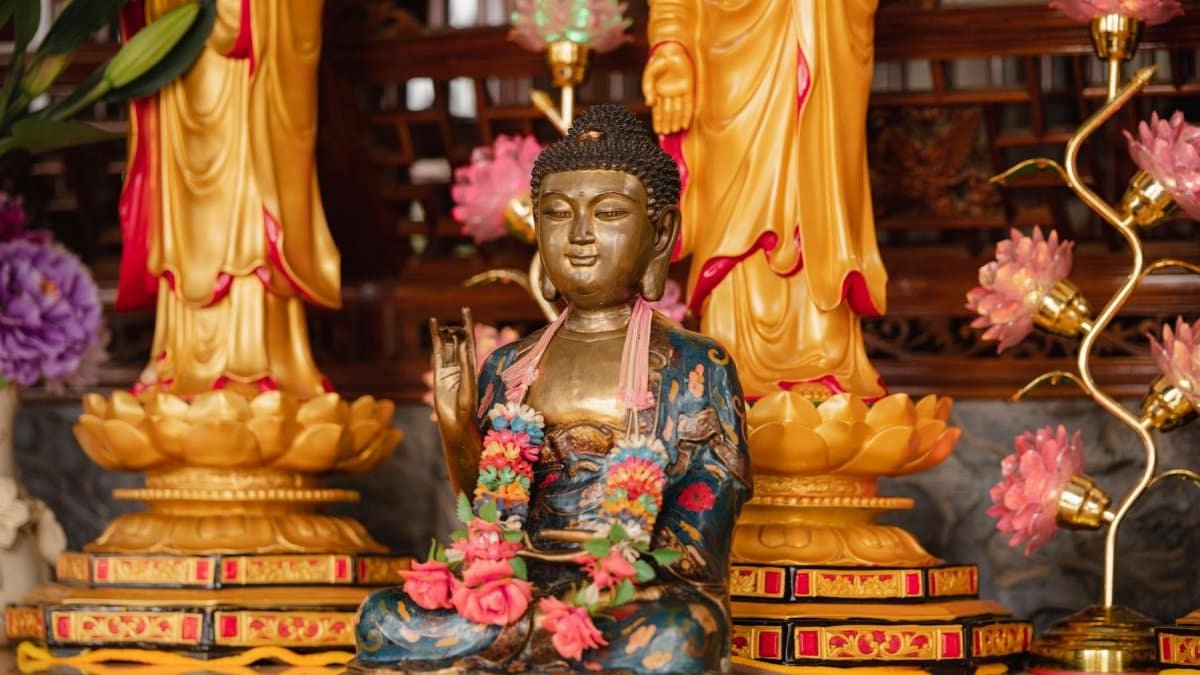In cafes from Brooklyn to Seattle, a subtle shift is catching on. Middle-aged professionals, once glued to their screens and stress-filled schedules, are now sipping herbal teas and discussing doshas over brunch. This isn’t just a fad; it’s a growing embrace of Ayurveda, the ancient Indian system of medicine that’s finding fresh relevance in 2025 America. What draws them in? For many, it’s the promise of balance in a world that feels increasingly off-kilter. Ayurveda emphasizes harmony between body, mind, and spirit, using personalized approaches like diet, herbs, and routines tailored to individual constitutions. As more people experiment with these practices, they report profound changes, from sharper focus to deeper relationships. It’s not about quick fixes but sustainable shifts that ripple through daily life. This trend reflects a broader yearning for holistic wellness amid modern chaos, where conventional medicine often falls short on preventive care.
A Renewed Sense of Energy

People often start with small adjustments, like aligning meals with their body’s natural rhythms. Take Sarah, a 45-year-old teacher from Chicago, who began following Ayurvedic guidelines for her vata dosha. Mornings used to drag, but now she wakes with a steady vitality that carries her through the day. It’s not magic; it’s about understanding how elements like air and space influence energy levels. Studies back this up. Research from the National Institutes of Health highlights how Ayurvedic practices can enhance metabolic function, leading to better stamina.NIH Study on Ayurvedic Metabolism. In her case, incorporating warm, grounding foods replaced the jittery highs and lows from coffee binges. Others notice similar boosts, feeling less depleted by evening. This change fosters a quiet confidence, making everyday tasks feel less like burdens.
Yet, it’s not always straightforward. Some grapple with the discipline required, questioning if the effort is worth it. But as habits form, the payoff becomes clear: sustained energy that supports not just work, but play and connection too.
Emotional Equilibrium Takes Root

“I used to snap at my kids over nothing,” one woman shared in an online discussion, describing her pre-Ayurveda life. Now, with practices like daily meditation and oil massages, she feels more even-keeled. Ayurveda teaches that emotions tie to doshas; imbalance in pitta might spark irritability, while kapha excess could lead to lethargy. By addressing these, practitioners often find a calmer inner landscape. A report from the Chopra Center, drawing on integrative medicine, notes reduced anxiety levels among those adopting these routines.Chopra Center on Ayurvedic Benefits.
This emotional steadiness extends outward. Imagine a couple arguing less because one partner has learned to cool their fiery tendencies with soothing herbs. It’s these subtle shifts that build resilience, helping navigate life’s ups and downs with grace.
Deeper Bonds in Relationships

Ayurveda doesn’t just heal the individual; it mends connections. Consider how attuned partners become when they sync their routines. A man in his fifties from Texas recounted how sharing Ayurvedic meals with his wife transformed their evenings from tense silences to meaningful talks. The practice encourages empathy, recognizing that each person’s dosha affects how they interact. For instance, a vata type might need more reassurance during stress, while a kapha individual thrives on stability.
Experts point to this relational boost. The University of Maryland Medical Center’s overview on complementary therapies suggests Ayurveda fosters better communication through mindfulness.University of Maryland on Complementary Therapies. Such insights reveal why many report stronger ties, from family dynamics to friendships. It’s about seeing others through a lens of balance, reducing conflicts born from misunderstanding.
Of course, challenges arise. Not everyone buys in at first, leading to initial friction. But persistence often yields harmony, proving Ayurveda’s role in healing relationships.
Physical Vitality Emerges

Bodies respond vividly to Ayurvedic principles. Think of yoga sessions tailored to doshas, or herbal remedies that ease chronic aches. A study in the Journal of Alternative and Complementary Medicine found participants experiencing improved joint health after consistent practice.Journal of Alternative and Complementary Medicine. For middle-aged folks, this means moving with ease, whether hiking or gardening.
One anonymous account described ditching painkillers for turmeric-infused oils, feeling agile again. This physical renewal isn’t isolated; it ties into overall vigor, making activities enjoyable rather than obligatory. Sentences shorten here to capture the quick wins: More flexibility. Less fatigue. Renewed strength.
Sleep Becomes Restorative

Nights change dramatically. Ayurveda promotes winding down with routines like warm milk or gentle stretches, countering the blue-light insomnia plaguing many. Followers often report falling asleep faster and waking refreshed. Data from sleep research at Harvard supports how such holistic methods improve rest quality.Harvard Sleep Research.
Picture a busy executive who once relied on pills now embracing abhyanga, the self-massage that calms the nervous system. Mornings feel clearer, decisions sharper. This ripple effect enhances daily life, proving sleep’s foundational role in wellbeing.
Transitions vary: Some adapt quickly, others experiment with herbs like ashwagandha. The key? Patience, as the body recalibrates.
Mindful Eating Transforms Meals

Eating shifts from habit to ritual. Ayurveda advises foods based on seasons and doshas, turning meals into acts of self-care. A group of friends in California started this, noticing digestion improve and cravings diminish. It’s practical: Spicy for kaphas, cooling for pittas.
Research from the National Center for Complementary and Integrative Health underscores these dietary benefits for gut health.NCCIH on Integrative Health. Over time, this leads to weight stability and more energy from nourishment, not just calories.
Self-Awareness Grows

At its core, Ayurveda invites introspection. Practitioners learn to read their bodies’ signals, from subtle moods to energy dips. This awareness breeds confidence, as one navigates choices with intuition.
A brief story: A writer in New York, overwhelmed by deadlines, used pulse diagnosis to spot imbalances early. It prevented burnout, fostering a proactive stance. Such tales highlight Ayurveda’s empowering side.
Complexity enters: Not all signals are clear, requiring guidance from experts. Yet, this journey deepens self-understanding, essential for inner peace.
Stress Management Evolves

Modern stress meets ancient wisdom. Techniques like pranayama breathing cut through anxiety, offering immediate relief. Many in high-pressure jobs find this invaluable, reporting fewer overwhelm episodes.
An online shared experience noted, “Ayurveda turned my panic into poise.” Backed by findings from the American Psychological Association on mindfulness practices.APA on Mindfulness.
Longer reflections mix in: Building resilience takes time, but the tools endure, adapting to 2025’s demands like remote work strains.
Sustained Inner Peace

Ultimately, these changes culminate in lasting tranquility. Relationships heal, bodies thrive, minds quiet. It’s a holistic path, resonating with those seeking meaning beyond the surface.
Trends show more Americans integrating Ayurveda, per Pew Research on wellness shifts.Pew Research on Wellness. This isn’t fleeting; it’s a foundation for enriched living.
Embracing Long-Term Growth

Growth unfolds gradually. Initial enthusiasm might wane, but committed practitioners see compounded benefits. Emotional health strengthens, supporting personal and relational evolution.
One reflection: A couple renewed their vows after Ayurveda helped them communicate better. It’s these stories that inspire, showing the practice’s depth in fostering wellbeing.
